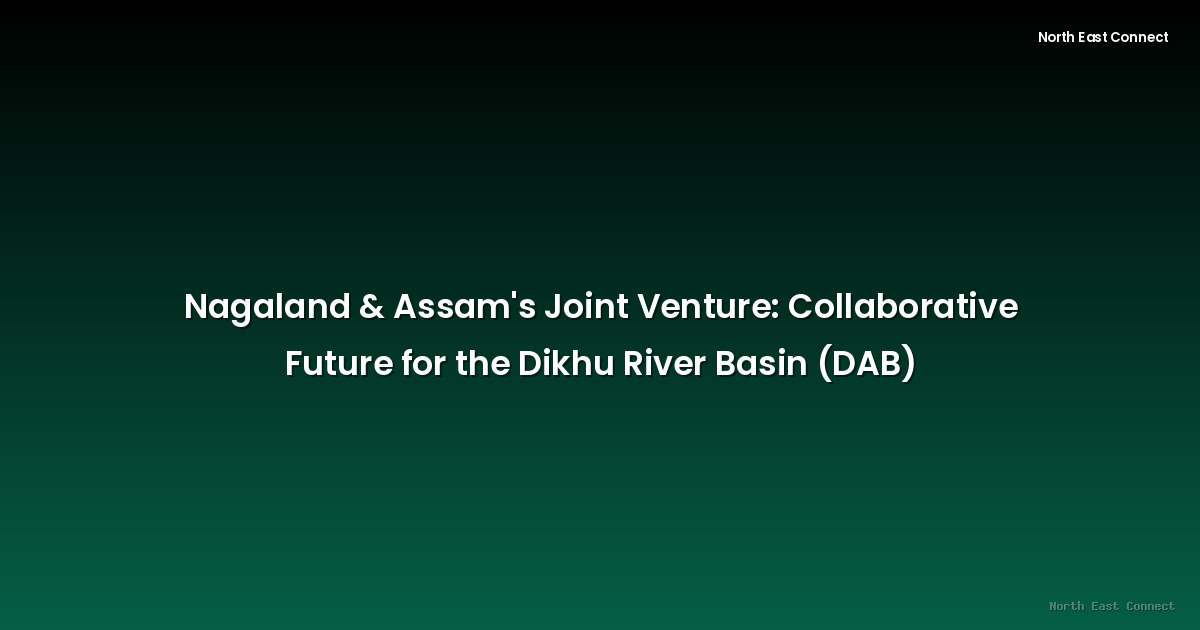2025-08-22 · News
The states of Nagaland and Assam have reached a significant agreement regarding the future management and development of the Dikhu River Basin (DAB). This landmark decision signals a new era of collaborative efforts between the two northeastern states, focusing on shared resources and regional development. The joint venture aims to streamline activities within the DAB, ensuring a more efficient and sustainable approach to its utilization.
The Dikhu River, a crucial water source for both Nagaland and Assam, has historically been a point of potential contention due to its shared nature. However, recognizing the mutual benefits of cooperation, both state governments have committed to jointly undertaking all future activities related to the DAB. This includes, but is not limited to, irrigation projects, flood control measures, and environmental conservation initiatives.
This collaborative approach will involve the sharing of resources, expertise, and data pertaining to the DAB. A joint mechanism will be established to facilitate communication, coordination, and decision-making between the two states. This mechanism will ensure transparency and accountability in all projects undertaken within the basin. The focus will be on equitable distribution of benefits and the sustainable use of resources for the long-term benefit of the communities reliant on the Dikhu River.
The agreement represents a substantial shift from potentially contentious resource management towards a more harmonious and integrated approach. By working together, Nagaland and Assam can maximize the benefits derived from the DAB while minimizing the risks associated with independent, potentially conflicting, initiatives. This collaborative spirit is expected to foster improved relations between the two states and serve as a model for inter-state cooperation in other shared resource management contexts within Northeast India.
The specific details of the implementation plan are still being finalized. However, the commitment to joint action is a significant step forward. It signifies a recognition of the shared responsibility and mutual benefits inherent in collaborative resource management. Observers expect this agreement to foster greater stability and development within the Dikhu River Basin and potentially serve as a positive example for other regions facing similar challenges related to shared natural resources. The long-term success of this initiative will depend on the effective implementation of the agreed-upon framework, ongoing communication, and a continued commitment from both states to prioritize mutual benefit and sustainable development. The agreement marks a potentially transformative moment in inter-state relations and resource management within Northeast India. Further details regarding the specifics of the joint mechanism and implementation timeline are expected to be released in due course.
This agreement holds significant promise for the long-term development and sustainability of the Dikhu River Basin. Its success will not only benefit the communities directly reliant on the river but could also serve as a template for collaborative resource management across other regions of Northeast India, fostering greater regional integration and prosperity. The commitment to joint action marks a significant step towards a more sustainable and equitable future for the people of Nagaland and Assam.







